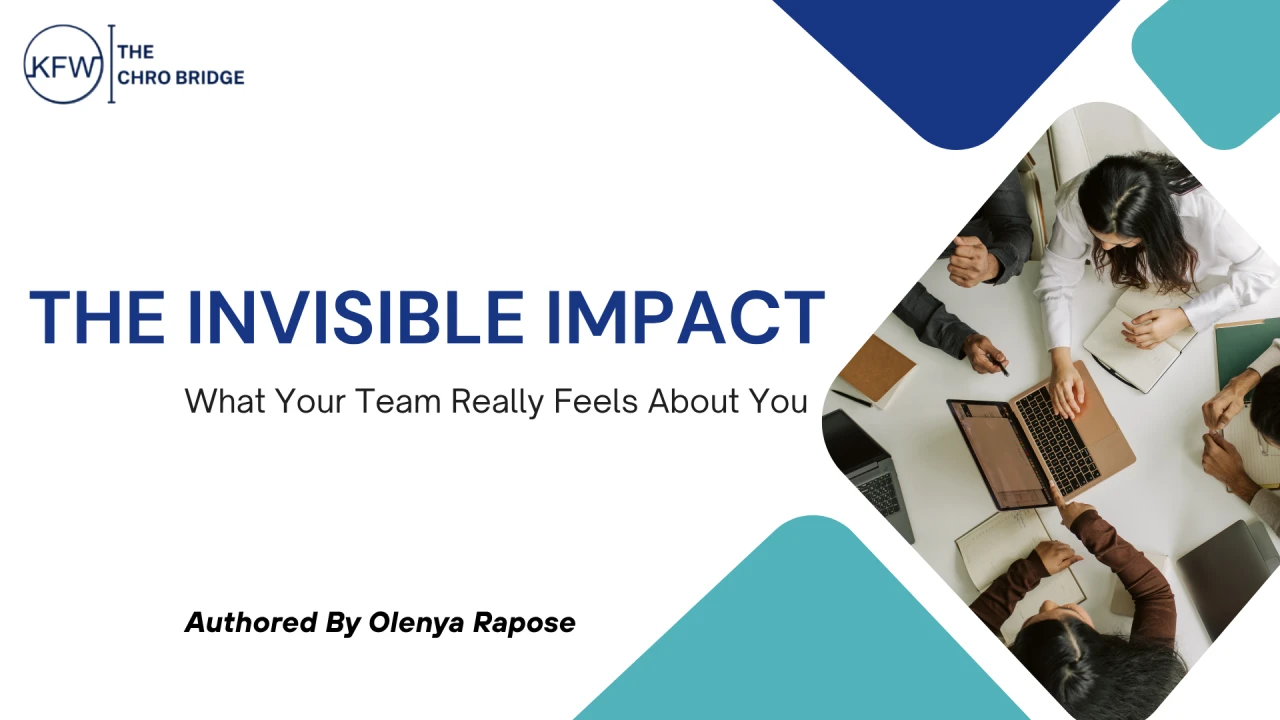The Invisible Impact - What Your Team Really Feels About You?

Off the coast of New Zealand, researchers once watched an octopus do something surprising. It picked up two discarded coconut shells, carried them across the seafloor, and carefully fitted them together to build a shelter for himself. No display. No drama. Just a quiet, deliberate act to feel a little safer.
At first, it looked unremarkable. But that small act - barely noticed - transformed how secure the octopus felt. And in time, it subtly changed the dynamics of everything around it.
Here's why that matters.
In most workplaces, there's usually someone who plays that same quiet role. They're not loud. They're not showy. They don't interrupt meetings or dominate group chats.
But when tension rises, they bring calm. When decisions stall, they offer clarity often without fanfare. When people around them feel stuck or scattered, they somehow create a sense of order again.
You might know someone just like that; it could be the HR partner who diffuses a difficult conversation before it escalates. Or the team lead who gives just enough direction to help others find their footing. Sometimes it's the quietest person in the room who asks that one question and the whole perspective shifts.
These people hold the room steady. Not with hierarchy or power but with trust. And their influence is easy to miss until they're no longer around.
This implies the qualities that hold teams together are not always clearly visible. They don't show up on dashboards. They're not listed in OKRs. But they shape everything, the tone, the culture, resilience and focus.
So, the better question to ask here is not what do these people do? But more importantly, what happens when they're there? And even more importantly what happens when they're not?
Take a moment to think about your own team.
- Who brings a sense of stability during difficult moments?
- Who helps others feel safe, just by showing up?
- Whose absence changes the energy in the room?
Now, flip the lens.
What do you mean to your team? Not based on your title, but your presence. Not your KPIs, but how people feel when you walk in and out of a space. Do they recognise what you bring along?
This kind of leadership matters.
It doesn't always raise its hand, but it quietly holds the system together.
It's not about being the most visible. It's about being the most grounding.
So, here's an invitation: Think of the person who did that for you. The one who made a hard week bearable. Who showed up when things were messy. Who gave you space to think clearly again.
Reach out. Say it. Let them know. Because leadership that doesn't ask for attention that's often the leadership that deserves it the most.





